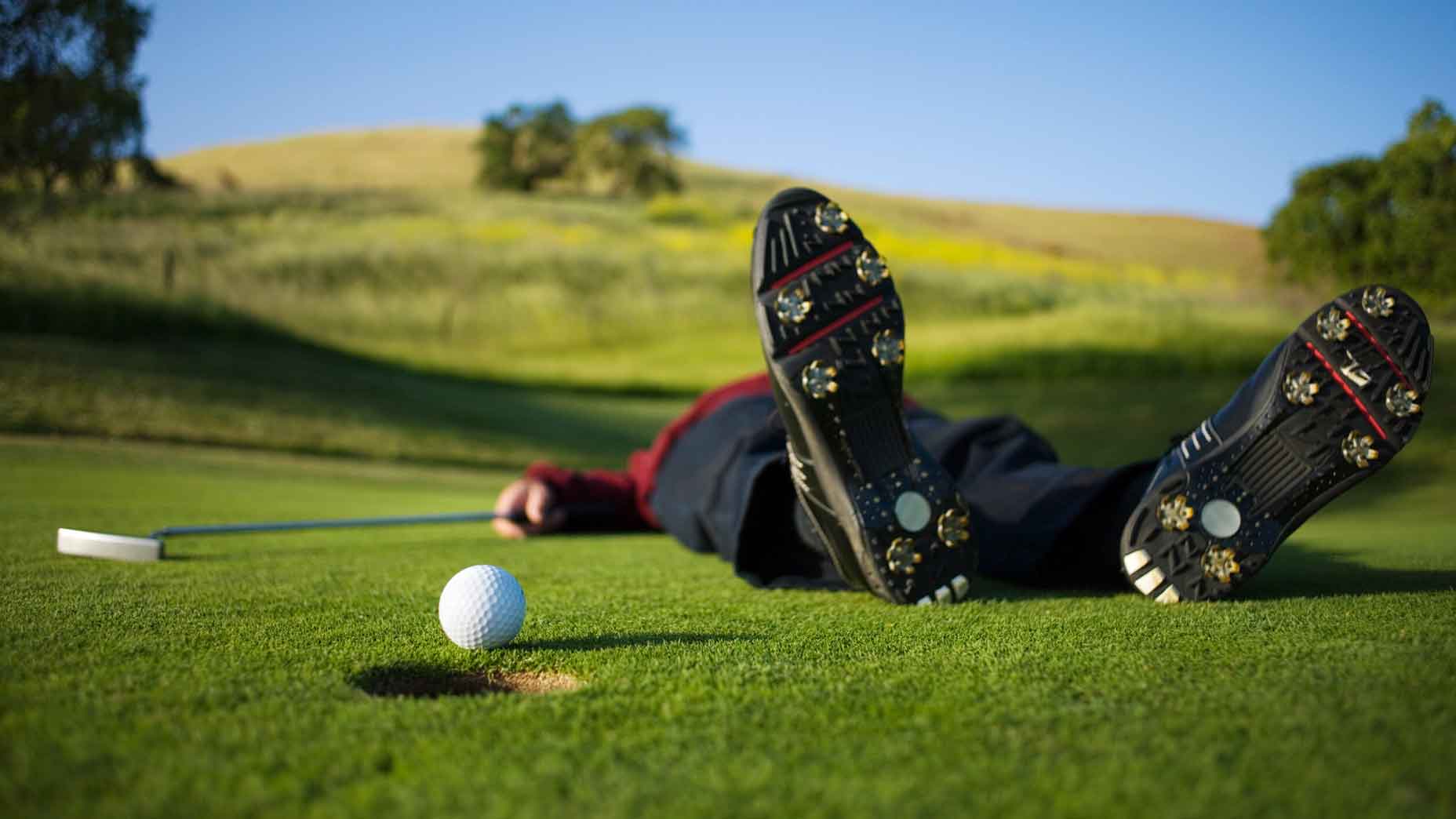Julie Elion

Self-handicapping could be a good factor — generally.
Getty Photos
What’s your golf handicap? No, not your present taking part in index. I’m speaking about your self-handicap, outlined as your favourite excuse after a sub-par shot or a way- over-par spherical — and in contrast to what’s subsequent to your title within the GHIN, it has nothing to do with the way you compete. As an alternative, it’s all about the way you compete towards your self.
Self-handicapping is a psychological time period for the rationalizations we make to guard our vanity. We don’t prefer to fail, so we preemptively and defensively establish a purpose why we’d. Two summers in the past, in reality, this journal ranked the most typical first-tee excuses — alibis like “I didn’t have an opportunity to heat up,” “I’ve by no means performed this course earlier than” or the chief of the lamest line record: “I haven’t performed shortly.” What number of of those have you ever heard — or stated — this season?
I do it too. On a current, wet Saturday, I used to be taking part in poorly. Shot after shot, I heard myself complain. “My grips are moist,” I stated. Then, after the rain stopped, “These grips are previous.” On the again 9 it was: “I didn’t carry one other glove.” I saved discovering causes to make myself really feel higher in regards to the missed photographs.
Skilled golfers difficulty their very own variations of those self-handicapping excuses. At a current PGA Tour occasion, the co-leader chunked his wedge within the water on 18. He stared at his clubface as if defective grooves had ruined the shot.
What’s occurring right here? Justifications serve a productive function in that they defend us from seeing our errors as private failures. However, as tutorial researchers on self-handicapping have discovered, there may be additionally one other profit to this tactic: It really helps us benefit from the recreation extra as a result of it helps us low cost unfavorable outcomes. As most commentators on the psychological recreation of golf counsel, we often play higher once we cease obsessing about our rating.
The authors of an necessary examine on this nook of sports activities psychology discovered that pinball gamers who used excuses like these golfers depend on — “I didn’t apply,” for instance — had been way more current of their video games. Excuses, the analysis suggests, create much less nervousness, decrease stakes, more room to have enjoyable and permission to be imperfect.
Excuses may even be a mirrored image of a participant’s ardour. We care about how golf makes us really feel. That love of the sport and the will to succeed was an enormous a part of what I used to be experiencing throughout my waterlogged spherical.
However self-handicapping is just not all the time the most effective technique for each golfer — definitely not my PGA execs. Tour gamers rely upon excessive efficiency and are paid for outcomes. Excuses that deflect accountability additionally stunt studying, inhibit development and limit resilience.
Are your on-course frustrations psychological or technical? Why it pays to know the distinction
By:
Julie Elion
Be taught from 2024 Olympic gold medalist Scottie Scheffler. On the seventh gap of his second spherical, Scottie discovered himself hacking out of a horrible lie within the tall grass. He took an enormous swing that superior his divot farther than his ball. The subsequent shot’s lie wasn’t significantly better. About that frustratingly relatable sequence, Scheffler stated: “I do know if I keep affected person round this golf course and play nicely, I can shoot a low rating. It’s only a matter if I begin freaking out and begin forcing issues, you’re going to get in bother actually quick.”
Scheffler didn’t dwell on the dangerous shot that bought him into bother nor the unsatisfying try to get out of it. As an alternative of self-handicapping, he stayed centered and constructive.
That’s the distinction between an newbie like me griping about my grips and the professional who blames the bug on his ball. For all of the facet advantages of excuses, they nonetheless set a unfavorable tone. In any case, what number of begin with “I didn’t” or “I haven’t”? On the skilled stage, negativity is kryptonite for focus and diminishing vitality.
One in every of my purchasers was just lately evaluating his vary recreation to his actual recreation and made an astute statement: “I hit it too good in apply to not notice that when I’m taking part in within the match, I’m extra prone to lose my rhythm or begin to really feel stress and never swing freely.” In competitors, swing coaches say, strain adjustments a participant’s bodily actions, compromising all the pieces from swing planes to wrist stress to tempo.
Golf is tough; assessing ourselves actually is even more durable. For the newbie, the self-awareness you’ve beforehand examine on this column stays a key to success. If self-handicapping helps you take pleasure in your time on the market, that’s high-quality. It’s necessary to have enjoyable. Simply take heed to what your excuses are and should not — and once you hear them out of your taking part in companions, no must roll your eyes. Perceive their frustrations, keep centered in your recreation and transfer on to your subsequent shot.
Excuses are like ldl cholesterol: There’s a superb sort and a foul sort. However there aren’t any good excuses for being unaware.
Julie Elion has labored with half of the highest 10 earners of all time, representing over $500 million in profession earnings, 150 PGA Tour wins and 25 main championship wins.
















